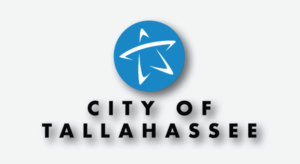
The quality of drinking water has yet again become a hot topic with the water crisis happening in Jackson, Mississippi. With infrastructure and lack thereof being a point of many conversations, it is important to be aware of your city’s water quality.
Many individuals attempt to improve the quality of the water they consume by installing filters and water softeners or taking the expensive, but necessary route of replacing pipes. Some avoid drinking tap water altogether and rely on bottled or water delivery services. Many students consider a Brita filter a college essential, but is it necessary?
The City of Tallahassee has released its 2022 Water Quality Report. This annual report explains any contaminates found within the water, compared to the Florida Department of Environmental Protection, the U.S. Environmental Protection Agency, and the Florida Department of Health guidelines and regulations.
The report covers the sourcing and treatment of Tallahassee’s water supply. The city uses 27 deep wells drilled directly into the Floridian aquifer. According to the report, each deep well is treated with chlorine and fluoride, and only six of the wells use carbon filtration.
Some people consider the use of the Floridian aquifer a controversial practice due to it being a limited resource, but in the message included within the water report Steve Shafer, the general manager of Underground Utilities & Public Infrastructure, said, “Our team continually works to protect the pristine Floridan aquifer that supplies our water to ensure it is available for generations to come. We also rely on you to be water-wise and help protect this natural resource.”
The city includes various water use recommendations and warnings for Tallahassee residents. They suggest individuals monitor their water heaters, maintain home water treatment systems, and flush faucets if they haven’t been used for six or more hours. It also includes environmental tips to avoid contaminating the environment with unnecessary chemicals like medications, lawn chemicals and used oil.
There were more than 30,000 tests conducted on drinking water from Jan. 1 to Dec. 31, 2021, to obtain the results listed in the report. There are over 80 contaminants the water is tested for, although only 18 are listed in the report. The contaminants are organized into five categories: stage 1 disinfectants/stage 2 disinfection by-products, radioactive contaminants, lead and copper, volatile organic contaminants, and inorganic contaminants.
All contaminates listed on the water report are under the maximum contaminant level (MCL), the highest level of a contaminant that is allowed in drinking water. However, multiple contaminants exceed the maximum contaminant level goal (MCLG), the allowed level of a contaminant in drinking water without known or expected health risk. The water report shows the drinking water in Tallahassee is safe for drinking but not completely free of “bad’” chemicals.
Tallahassee has won the Best Tasting Drinking Water Contest, a competition held by the Florida Section of the American Water Works Association, multiple times in 2016, 2015, and 2008. Although the judging is subjective, the competition is based on taste, color, odor and clarity.
The 2022 fiscal year budget report for Tallahassee includes multiple improvements: $44.9 million for improving and maintaining the drinking water system and securing funding to continue the Think About Personal Pollution (TAPP) program over the next five years. It also includes the initiative to “maintain best in class water quality.”